The Gate of Heavenly Peace (1995)
Género : Documental
Tiempo de ejecución : 3H 0M
Director : Carma Hinton, Richard Gordon
Sinopsis
The Gate of Heavenly Peace is a feature-length documentary about the 1989 protest movement, reflecting the drama, tension, humor, absurdity, heroism, and many tragedies of the six weeks from April to June in 1989. The film reveals how the hard-liners within the government marginalized moderates among the protesters (including students, workers and intellectuals), while the actions of radical protesters undermined moderates in the government. Moderate voices were gradually cowed and then silenced by extremism and emotionalism on both sides.
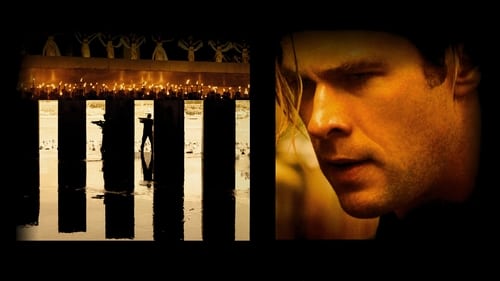
Thriller cibernético en el que varios agentes norteamericanos y chinos, con ayuda de un convicto liberado, se unen para detener a un misterioso hacker. Todo comienza cuando los gobiernos de Estados Unidos y China se ven obligados a cooperar por el bien de la seguridad nacional de ambas potencias. El motivo: una fuerte amenaza informática está poniendo en riesgo las vidas y el futuro de la población; delitos informáticos de alto nivel para los que deberán recurrir a sus mejores agentes de campo si quieren llegar a tiempo para evitar lo peor.
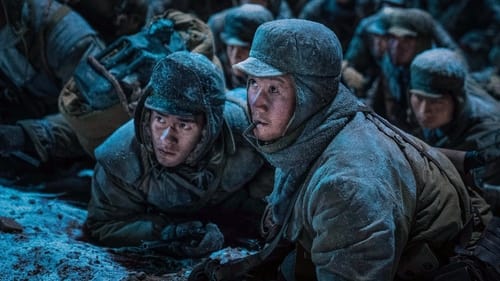
Los soldados chinos ganaron la batalla en el lago Changjin, también conocida como la batalla del embalse de Chosin, en condiciones climatológicas extremas. La lucha entre Estados Unidos y China, que tuvo lugar desde el 27 de noviembre al 24 de diciembre de 1950, es considerada como una de las batallas más violentas de la Guerra de Corea.

Un despiadado bandido gobierna las tierras del noroeste de China desde su fortaleza en la montaña del tigre. Un capitán del Ejercito Popular de Liberación lanzará una ofensiva contra el dictador y enviará a un investigador para que se infiltre en sus filas y los destruya desde el interior.
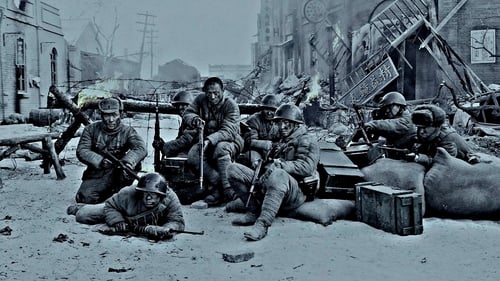
Un soldado intenta ganar el reconocimiento para sus camaradas, muertos en 1984 en la guerra civil entre las fuerzas comunistas y nacionalistas del Kuomintang (KMT)
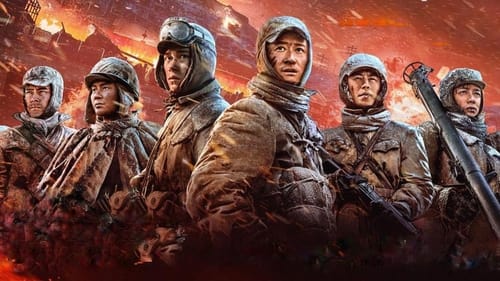
Secuela de "The Battle at Lake Changjin" que se centra en los soldados del CPV (Chinese People's Volunteers) en una nueva misión crucial para vencer a las tropas norteamericanas.
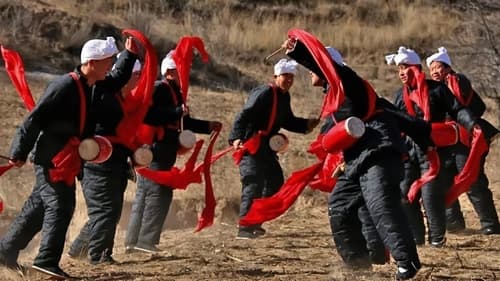
En 1939, un soldado llega a una aldea de la provincia de Shaanxi del norte para recopilar canciones populares que, tras modificarles las letras, serán cantadas por el ejército comunista allí donde vaya. Este hecho cambiará para siempre la vida de una chica campesina de 14 años que vive en el lugar.

As the Communist Party of China celebrates its 100th anniversary, this documentary looks back at the party’s history, from the 1920’s, to the Civil War, the Great Leap Forward, the Great Famine, the Cultural Revolution and the reforms by Mao Zedong and Deng Xiaoping. Did the Great Famine cost more than 15 million lives? How does the Cultural Revolution continue to shape Chinese politics today? What was capitalism like after Mao’s death? Through rare and never-before-seen historical footage, expert interviews and eyewitness accounts of the Great Famine, Tiananmen incident, and the Cultural Revolution, get to know how one party has so profoundly shaped China.

The documentary that answers the question: is having month-long double paid vacations, no fear of homelessness, and universal health care the nightmare we've been warned about? The answer may surprise you.

The story of Li Dazhao's revolutionary deeds from 1912 to 1927, and the story of the benevolent and revolutionary pioneers who were led by him to devote themselves to the great cause of Marxism

Pre-Cultural Revolution propaganda at its most lavish, this model opera depicts the history and evolution of the Communist Party of China under Mao Zedong from its founding in July 1921 to the establishment of "New China" in 1949. Detailed in the musical are several key events in CPC history such as the Northern Expedition, the KMT-led Shanghai massacre of 1927, the Nanchang Uprising and formation of the People's Liberation Army, the Long March and the founding of the PRC on October 1, 1949.

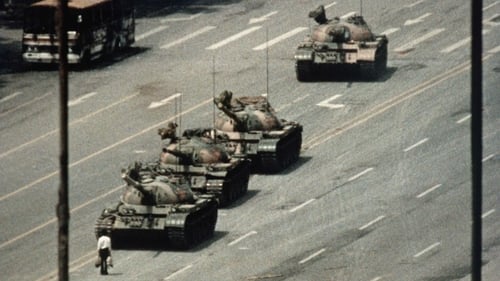
The Gate of Heavenly Peace is a feature-length documentary about the 1989 protest movement, reflecting the drama, tension, humor, absurdity, heroism, and many tragedies of the six weeks from April to June in 1989. The film reveals how the hard-liners within the government marginalized moderates among the protesters (including students, workers and intellectuals), while the actions of radical protesters undermined moderates in the government. Moderate voices were gradually cowed and then silenced by extremism and emotionalism on both sides.

This is the story of a Chinese hacking the American capitalist system, a Czech fight, chickens, doomsday.

Xu Xin’s film “Dao Lu” (China 2012) offers an exclusive “in camera” encounter with Zheng Yan, an 83 year-old veteran of the Chinese Red Army, who calmly relates how he has navigated his country’s turbulent history over three-quarters of a century.Born to a wealthy family in a foreign concession, Yan joined the Chinese Communist Party (CCP) in 1941 because he sincerely believed in the socialist project, and in its immediate capacity to free China from the Japanese yoke and eradicate deep-rooted corruption.

Esta película es una muestra del cine militante de los años 80. Los protagonistas son de lo más heterogéneo (desde políticos y profesionales de distintos campos hasta ciudadanos de a pie) y expresan sus opiniones acerca de los cambios acaecidos durante la Transición española. La inconveniencia de algunos testimonios y la sensación de crispación transmitida, hicieron que la película fuera “secuestrada” por la Administración, que impidió su estreno hasta noviembre de 1983.

Una historia de la Transición española contada en primera persona por los principales protagonistas: por un lado, los políticos, idealistas o meramente oportunistas, que la llevaron a buen término en las tribunas y los despachos; por otro lado, los ciudadanos que, en las calles, la apoyaron sinceramente o la combatieron con ferocidad. (Precedida por «No se os puede dejar solos»).

Documentary about the life of Sidney Rittenberg, an American who spent over 30 years in China and was an active participant in the Chinese communist revolution.
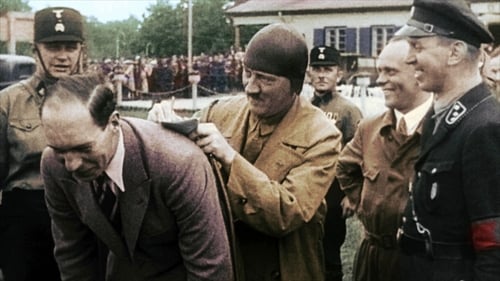
How Germany was when its people entered the nightmare of World War II? Despair and fear lead a hungry population to follow the chilling call of just one man to world domination. A real-life horror story, an ominous tale of violence and deception, which takes place from 1919 to 1934. (Entirely made up of restored, colorized archival footage.)

Documentary about the merging of the Communist Party of Germany and the Socialist Unity Party of Germany in the Soviet occupation zone, a merger that would lead to the creation of the Socialist Unity Party that would rule the soon-to-be-created East Germany until 1989.
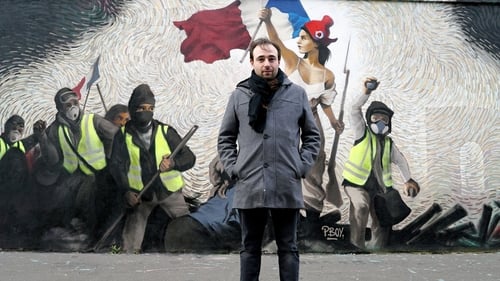
Thoughts of a diversity of public and private citizens on the virtues of democracy, its faults, its decadence, its fall and the rise of populism.















